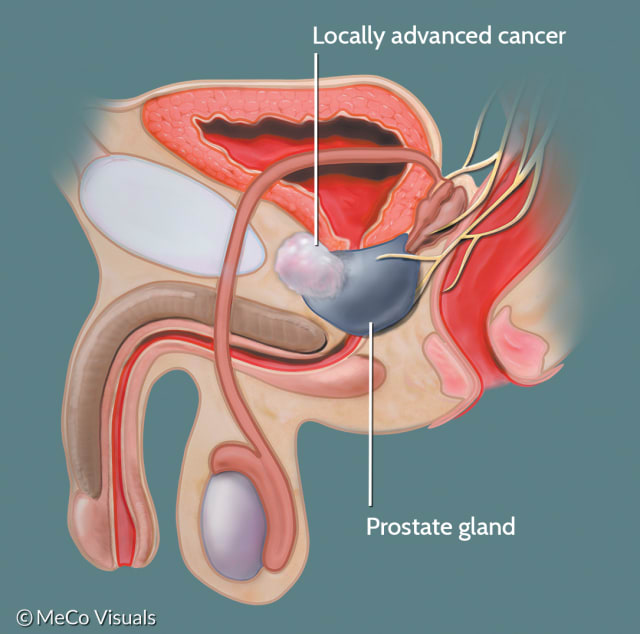The Benefits of Psychotherapy and Medication for Schizophrenia: How They Work and What to Expect

Understanding Schizophrenia: A Complex Mental Health Condition
Schizophrenia is a complex mental health condition that affects millions of individuals worldwide. It is characterized by a combination of symptoms that include delusions, hallucinations, disorganized thinking, and impaired social functioning. This condition can be overwhelming for those who experience it, as well as for their loved ones.
This video was produced by the Mayor’s Office of Community Mental Health in partnership with the Center for Practice Innovations at Columbia Psychiatry, housed within the New York State Psychiatric Institute.
While the exact cause of schizophrenia is still unknown, research suggests that a combination of genetic, environmental, and neurobiological factors contribute to its development. Studies have shown that individuals with close relatives who have schizophrenia have a higher risk of developing the condition themselves. Additionally, certain environmental factors such as exposure to viral infections during early development and complications during pregnancy and birth have been linked to an increased risk of developing schizophrenia.
It is crucial to recognize that schizophrenia is a complex disorder that requires a comprehensive approach to treatment. The road to recovery can involve a range of interventions, including medication, therapy, and support from mental health professionals. Although there is no cure for schizophrenia, with appropriate treatment and support, individuals can manage their symptoms and lead fulfilling lives. Understanding the complexity of this condition is essential in order to provide effective and compassionate care to those affected by schizophrenia.
The Role of Psychotherapy in Schizophrenia Treatment

Psychotherapy plays a crucial role in the treatment of schizophrenia, a complex mental health condition characterized by debilitating symptoms such as hallucinations, delusions, and impaired thinking. While medication is often the primary form of treatment for schizophrenia, psychotherapy offers a holistic and comprehensive approach that addresses the psychological, emotional, and social aspects of the condition.
One of the main goals of psychotherapy in schizophrenia treatment is to help individuals gain a better understanding of their symptoms and develop coping strategies to manage them effectively. Through various therapeutic approaches, such as cognitive behavioral therapy (CBT) and family therapy, individuals with schizophrenia can learn to identify and challenge negative thought patterns, explore their emotions, improve communication skills, and build supportive relationships. Additionally, psychotherapy can help individuals enhance their problem-solving abilities and develop a sense of empowerment and self-efficacy in managing their symptoms. By actively engaging in therapy, individuals with schizophrenia can experience improved overall well-being and increased functionality in their daily lives.
Exploring the Various Types of Psychotherapy for Schizophrenia
Psychotherapy is an integral component of the comprehensive treatment plan for individuals with schizophrenia. It aims to help individuals manage their symptoms, improve their social and occupational functioning, enhance their quality of life, and increase their overall well-being. There are several types of psychotherapy that have been found to be effective in alleviating the symptoms and improving the outcomes for individuals with schizophrenia.
Here is a table that lists various types of psychotherapy for schizophrenia and their benefits:
| Type of Psychotherapy | Benefits |
|---|---|
| Cognitive Behavioral Therapy (CBT) | Helps in reducing the severity of symptoms, improving social functioning, and reducing the risk of relapse 1 |
| Family Therapy | Helps in reducing the severity of symptoms, improving social functioning, and reducing the risk of relapse 1 |
| Psychoeducation | Helps in reducing the severity of symptoms, improving social functioning, and reducing the risk of relapse 1 |
| Cognitive Remediation | Helps in improving cognitive functioning, reducing the severity of symptoms, and improving social functioning 1 |
One widely used approach is cognitive-behavioral therapy (CBT). CBT focuses on identifying and challenging distorted thoughts and beliefs, as well as modifying maladaptive behaviors. It aims to help individuals develop more effective coping strategies and problem-solving skills. Research has shown that CBT can reduce positive symptoms such as hallucinations and delusions, and improve insight and social functioning. It is often used in combination with medication for optimal results.
Another type of psychotherapy that is often recommended for individuals with schizophrenia is family therapy. This approach recognizes the importance of involving family members in the treatment process and aims to improve communication, resolve conflicts, and enhance support within the family system. It can help families understand the nature of schizophrenia, learn effective coping strategies, and create an environment that promotes recovery and well-being. Family therapy has been found to reduce relapse rates, enhance medication adherence, and improve overall family functioning.
These are just two examples of the various types of psychotherapy available for individuals with schizophrenia. Each type of therapy has its own unique approach and techniques, and the choice of therapy depends on individual needs and preferences. It is important for individuals with schizophrenia and their healthcare providers to work together to determine the most appropriate therapeutic approach and to tailor the treatment plan to meet specific goals and needs. Continued research in this area is essential to further strengthen the efficacy and understanding of psychotherapy for schizophrenia.
Cognitive Behavioral Therapy: Empowering Individuals with Schizophrenia
Cognitive Behavioral Therapy (CBT) is a powerful therapeutic approach that has shown great promise in empowering individuals with schizophrenia. By focusing on the connection between thoughts, emotions, and behaviors, CBT aims to help individuals identify and challenge negative or distorted thinking patterns that contribute to their symptoms. This form of therapy is guided by the belief that by changing their thoughts, individuals can subsequently change their emotions and actions, leading to improved functioning and quality of life.
One of the key aspects of CBT for schizophrenia is its emphasis on psychoeducation and skill building. Through psychoeducation, individuals can gain a better understanding of their condition and the specific symptoms they experience. This knowledge not only helps to reduce feelings of confusion and fear but also provides a foundation for developing coping strategies and problem-solving skills. By learning how to identify and challenge irrational beliefs or thoughts, individuals can gain a sense of control over their symptoms and develop more adaptive ways of thinking and behaving. Additionally, CBT often incorporates the use of behavioral techniques, such as goal setting, activity scheduling, and relaxation exercises, which further enhance individuals’ ability to effectively manage their symptoms.
Family Therapy: Fostering Support and Communication

Family therapy plays a vital role in the treatment of schizophrenia as it fosters support and communication among family members. Schizophrenia not only affects the individual diagnosed with the condition but also has a profound impact on their loved ones. Family therapy provides a safe and supportive environment where family members can express their concerns, emotions, and experiences related to the illness.
Through open and honest communication, family therapy aims to improve understanding and empathy among family members. This can help reduce feelings of isolation and frustration, while also promoting a sense of unity and collaboration in managing the challenges presented by schizophrenia. By involving the family in the treatment process, the success of the individual’s recovery can be significantly enhanced as the family becomes an active and supportive part of their journey towards wellness.
Social Skills Training: Enhancing Functionality and Independence
Social skills training is an essential component of the comprehensive treatment plan for individuals with schizophrenia. By focusing on the development and enhancement of social and interpersonal skills, this form of therapy aims to improve functionality and independence for those affected by the condition. Through targeted interventions and evidence-based techniques, individuals can acquire the necessary skills to navigate social interactions and form meaningful relationships.
One of the main objectives of social skills training is to help individuals with schizophrenia overcome the social deficits commonly associated with the condition. These deficits may include difficulties in initiating and maintaining conversations, interpreting social cues, and resolving conflicts. By systematically and strategically addressing these challenges, social skills training can empower individuals to build strong social connections and enhance their overall quality of life. By incorporating role-playing exercises, group therapy sessions, and real-life applications, individuals learn practical and effective ways to improve their social interactions and overcome the barriers they may experience in daily life.
The Science Behind Medication for Schizophrenia Treatment
Medication plays a vital role in the treatment of schizophrenia, helping to alleviate symptoms and improve overall functioning. But what exactly is the science behind these medications? How do they work in the brain to restore balance and alleviate the often debilitating symptoms of this complex mental health condition?
At the heart of antipsychotic medications’ effectiveness lies their ability to block certain receptors in the brain, primarily dopamine receptors. Dopamine is a neurotransmitter that plays a crucial role in regulating mood, motivation, and pleasure. In individuals with schizophrenia, abnormal dopamine activity contributes to the manifestation of symptoms such as hallucinations, delusions, and disorganized thinking.
By blocking dopamine receptors, antipsychotic medications reduce the activity of this neurotransmitter in the brain. This in turn helps to counteract the excessive dopamine levels and restore a more balanced neurotransmitter system. This mechanism of action can help alleviate symptoms and improve overall functioning in individuals with schizophrenia. However, it’s important to note that the exact mechanisms of action may vary depending on the specific medication prescribed.
Antipsychotic Medication: Restoring Balance in Brain Chemistry
Antipsychotic medication plays a crucial role in restoring balance in brain chemistry for individuals with schizophrenia. These medications work by targeting the imbalances in neurotransmitters, specifically dopamine and serotonin, which are implicated in the symptoms of schizophrenia. By modulating the activity of these neurotransmitters, antipsychotics help to alleviate hallucinations, delusions, and disorganized thinking.
Studies have shown that antipsychotic medication can effectively reduce the severity of positive symptoms such as hallucinations and delusions. In fact, a meta-analysis of randomized controlled trials found that antipsychotics were significantly more effective than placebo in reducing positive symptoms in individuals with schizophrenia. Additionally, these medications have been shown to improve overall functioning and quality of life for individuals with schizophrenia.
It is important to note that antipsychotic medication is not a cure for schizophrenia, but rather a valuable tool in symptom management and relapse prevention. However, the decision to prescribe antipsychotic medication should be made on an individual basis, taking into consideration the overall clinical presentation, side effect profile, and the individual’s preferences and goals of treatment. Regular monitoring and communication with a healthcare provider are essential to ensure optimal effectiveness and minimize potential side effects.
The Different Classes of Antipsychotic Medication and Their Mechanisms

Antipsychotic medications are a cornerstone of treatment for individuals with schizophrenia. These medications can help alleviate symptoms, improve functionality, and enhance overall quality of life. There are two main classes of antipsychotic medications: first-generation (typical) antipsychotics and second-generation (atypical) antipsychotics.
First-generation antipsychotics, such as haloperidol and chlorpromazine, primarily target the dopamine receptors in the brain. By blocking these receptors, these medications help to reduce the excess dopamine activity associated with psychosis. However, they also have significant side effects, including motor disturbances and movement disorders. Therefore, they are typically prescribed at lower doses and for shorter durations.
On the other hand, second-generation antipsychotics, including risperidone and olanzapine, have a broader mechanism of action. In addition to blocking dopamine receptors, they also affect other neurotransmitters, such as serotonin. This dual action may contribute to their efficacy in managing both positive and negative symptoms of schizophrenia. Moreover, second-generation antipsychotics are associated with a lower risk of movement disorders, making them a preferred option for long-term treatment. However, they may have other side effects, such as weight gain and metabolic disturbances.
It is important to note that the choice of antipsychotic medication depends on various factors, including individual response, tolerance to side effects, and the specific symptoms being targeted. A thorough evaluation by a healthcare professional is essential to determine the most suitable medication and dosage. Furthermore, regular monitoring and open communication with the healthcare team are crucial in ensuring the effectiveness and safety of antipsychotic treatment.
Combination Therapy: Maximizing Treatment Benefits

Combination therapy is an essential approach in maximizing the treatment benefits for individuals with schizophrenia. By combining different therapeutic interventions, such as medication and various forms of psychotherapy, this comprehensive approach aims to address the complex nature of the condition, enhance symptom management, and improve overall functioning and well-being.
One of the most commonly used combinations is the integration of antipsychotic medication with psychotherapy. Antipsychotic medication works by regulating brain chemistry and reducing psychotic symptoms, while psychotherapy helps individuals develop coping strategies, improve communication skills, and enhance their ability to navigate daily challenges. Research has shown that this combination approach leads to significant improvements in symptom reduction, relapse prevention, and quality of life for people with schizophrenia.
Moreover, combination therapy can play a vital role in addressing the broader needs of individuals with schizophrenia. This comprehensive approach recognizes that schizophrenia is not solely a biological disorder but also involves psychological, social, and environmental factors. By incorporating a range of therapeutic interventions, combination therapy can promote holistic care and support individuals in multiple domains of their lives – from managing symptoms and fostering independence to enhancing social skills and improving overall emotional well-being.
In conclusion, combination therapy in the treatment of schizophrenia maximizes the benefits by integrating medication and psychotherapy. This approach acknowledges the complex nature of the condition and provides a comprehensive approach to address the various aspects of schizophrenia. By combining different therapeutic interventions, individuals with schizophrenia can experience improved symptom management, enhanced functionality, and an overall better quality of life.
The Importance of Adherence to Medication and Therapy
Adhering to medication and therapy is of utmost importance in the treatment of schizophrenia. Consistency in taking prescribed medication and attending therapy sessions plays a pivotal role in managing symptoms, reducing relapses, and improving overall quality of life for individuals with this complex mental health condition.
Medication adherence is crucial as it helps to restore the balance of chemicals in the brain that are disrupted in schizophrenia. Antipsychotic medications, the cornerstone of treatment for this condition, work by targeting specific neurotransmitters, such as dopamine, serotonin, and glutamate, to alleviate symptoms like hallucinations, delusions, and disorganized thinking. However, for these medications to be truly effective, it is necessary to follow the prescribed dosage and schedule, as skipping doses or abruptly stopping medication can lead to a recurrence or worsening of symptoms. It is important to note that finding the right medication and dosage may take time, and individuals may need to work closely with their healthcare provider to discover what works best for them.
Similarly, participating in therapy alongside medication can greatly enhance the overall treatment outcome. Therapy provides individuals with schizophrenia with a supportive environment to understand and manage their condition, develop coping strategies, and improve their ability to function in daily life. Different forms of therapy, such as cognitive behavioral therapy (CBT), family therapy, and social skills training, offer unique benefits and can be tailored to meet individual needs. Engaging in therapy consistently allows individuals to explore their thoughts and feelings, learn new skills, and address any underlying emotional or interpersonal challenges that may be contributing to their symptoms. By actively participating in therapy, individuals can develop a strong foundation for effective symptom management and achieve greater stability and independence in their lives.
In the next section, we will delve deeper into the potential advantages and specific types of psychotherapy available for individuals with schizophrenia.
Addressing Common Concerns and Misconceptions about Treatment
Misconceptions and concerns surrounding the treatment of schizophrenia can often hinder individuals from seeking the help they need. It is imperative to address these concerns and provide accurate information to increase understanding and foster a sense of empowerment among those affected by this complex mental health condition.
One common misconception is that therapy alone can fully alleviate the symptoms of schizophrenia. While psychotherapy plays a crucial role in the overall treatment plan, it is most effective when combined with appropriate medication and other interventions tailored to individual needs. By integrating different treatment modalities, individuals can benefit from a comprehensive approach that addresses various aspects of the condition.
Another concern that arises is the fear of dependency on medication. It is important to note that antipsychotic medications prescribed for schizophrenia treatment are not intended to create dependency. Rather, they work by regulating the imbalances of certain chemicals in the brain, helping to manage symptoms and improve day-to-day functioning. Additionally, advances in pharmacological research have led to the development of different classes of antipsychotic medications, allowing doctors to tailor treatment plans to each individual’s unique needs.
Addressing these common concerns and debunking misconceptions is essential in ensuring that individuals with schizophrenia receive the most appropriate and effective treatment. By fostering a better understanding of the intricacies of managing this condition, individuals and their support networks can make informed decisions and embark on a path towards improved well-being and quality of life. In the following sections, we will delve deeper into the various therapies and medications available for schizophrenia treatment, shedding light on their mechanisms and benefits.
Monitoring Progress: Tracking Symptoms and Adjusting Treatment
As part of a comprehensive treatment plan for schizophrenia, monitoring progress is an essential component to ensure that symptoms are being effectively managed and treatment is appropriately adjusted. Tracking symptoms allows healthcare professionals to gather accurate and objective data, which can inform decisions regarding medication adjustments or the need for additional therapeutic interventions. It also provides a means of evaluating the effectiveness of the chosen treatment approach and identifying any potential relapses or worsening of symptoms.
To monitor progress and track symptoms, healthcare professionals utilize various assessment tools and strategies. These may include structured interviews, self-report measures, behavioral observations, and medical tests. Assessment tools such as the Positive and Negative Syndrome Scale (PANSS) or the Brief Psychiatric Rating Scale (BPRS) can provide a standardized way of evaluating symptom severity and progression over time.
In addition to these quantitative measures, qualitative information is also gathered through open-ended discussions with the individual and their support network. This allows for a more comprehensive understanding of the individual’s experiences, treatment response, and any specific challenges or concerns they may be facing. Regular communication and collaboration between the individual, their healthcare team, and any involved family members or caregivers are crucial in ensuring accurate monitoring of symptoms and adjusting treatment as needed.
Overall, monitoring progress and tracking symptoms in individuals with schizophrenia is a valuable tool in treatment planning and management. By closely monitoring symptoms, healthcare professionals can make informed decisions about adjustments to medication, therapy, or other interventions to optimize the individual’s well-being and quality of life. This ongoing monitoring and adjustment process is essential in supporting individuals on their journey towards stability and recovery.
The Role of Support Networks in Schizophrenia Treatment
Support networks play a crucial role in the comprehensive treatment of individuals with schizophrenia. These networks, consisting of family members, friends, and support groups, provide valuable emotional and practical support to those living with the condition. By offering understanding, encouragement, and a safe space to express their thoughts and feelings, these networks contribute to a sense of empowerment, acceptance, and overall well-being.
Research has shown that individuals who have strong support networks experience better treatment outcomes and improved quality of life compared to those without such networks. These networks provide a sense of belonging and reduce feelings of isolation that are often associated with schizophrenia. Moreover, support networks can assist individuals in accessing necessary resources, such as healthcare services, educational opportunities, and vocational support, which further enhance their overall treatment journey. By fostering communication, educating themselves about the condition, and actively participating in the treatment process, support networks can help individuals develop effective coping strategies and achieve greater independence in managing their symptoms and daily lives.
Living with Schizophrenia: Nurturing Hope and Empowerment
Living with schizophrenia can be a challenging journey, but it’s important to remember that there is always hope and empowerment available. With the right support, treatment, and self-care practices, individuals with schizophrenia can lead fulfilling and meaningful lives.
One crucial aspect of nurturing hope and empowerment is ensuring access to comprehensive and personalized treatment. This often involves a combination of psychotherapy and medication tailored to the individual’s needs. Psychotherapy, such as cognitive behavioral therapy and family therapy, can help individuals develop coping skills, improve communication and relationships, and enhance overall functioning. Additionally, antipsychotic medication can play a pivotal role in managing symptoms and restoring balance in brain chemistry. Adherence to medication and therapy is vital for maximizing treatment benefits and facilitating recovery.
Moreover, support networks play a pivotal role in nurturing hope and empowerment for individuals with schizophrenia. Connecting with understanding family members, friends, support groups, and mental health professionals who specialize in schizophrenia can provide a sense of belonging, validation, and encouragement. These support networks can offer vital emotional support, practical assistance, and resources for coping with the challenges of living with schizophrenia.
In conclusion, despite the complexities of living with schizophrenia, there is always hope and empowerment to be found. Through a comprehensive and personalized treatment approach, the cultivation of strong support networks, and dedication to ongoing self-care practices, individuals with schizophrenia can navigate their journey with resilience, strength, and the belief that a fulfilling life is within their reach.
What are the early signs and symptoms of schizophrenia?
Early signs and symptoms of schizophrenia may include social withdrawal, decreased motivation, difficulty concentrating, changes in sleep patterns, and unusual or irrational beliefs or thoughts.
Can schizophrenia be cured?
While there is currently no cure for schizophrenia, it can be effectively managed with a combination of medication, therapy, and support.
Is medication the only treatment option for schizophrenia?
No, medication is an important component of schizophrenia treatment, but therapy, such as cognitive behavioral therapy and family therapy, can also be beneficial in managing symptoms and improving overall functioning.
Are there different types of antipsychotic medications for schizophrenia?
Yes, there are different classes of antipsychotic medications, such as typical and atypical antipsychotics, each with their own mechanisms of action and potential side effects.
Can therapy alone be effective in treating schizophrenia?
While therapy can be helpful in managing symptoms and improving quality of life, medication is often necessary for individuals with schizophrenia to achieve symptom relief and stability.
How important is adherence to medication and therapy in schizophrenia treatment?
Adherence to medication and therapy is crucial in managing schizophrenia symptoms and preventing relapse. It is important to follow the prescribed treatment plan and communicate any concerns or difficulties to the healthcare provider.
What are some common misconceptions about schizophrenia treatment?
Some common misconceptions about schizophrenia treatment include the belief that medication is the only solution, that individuals with schizophrenia are dangerous or violent, and that they cannot lead fulfilling lives.
How can support networks help individuals with schizophrenia?
Support networks, such as family, friends, support groups, and mental health professionals, can provide emotional support, understanding, and practical assistance in managing day-to-day challenges associated with schizophrenia.
How can individuals with schizophrenia nurture hope and empowerment?
By actively participating in their treatment, engaging in therapy, building a strong support system, and focusing on personal strengths and goals, individuals with schizophrenia can nurture hope and empowerment in their lives.






